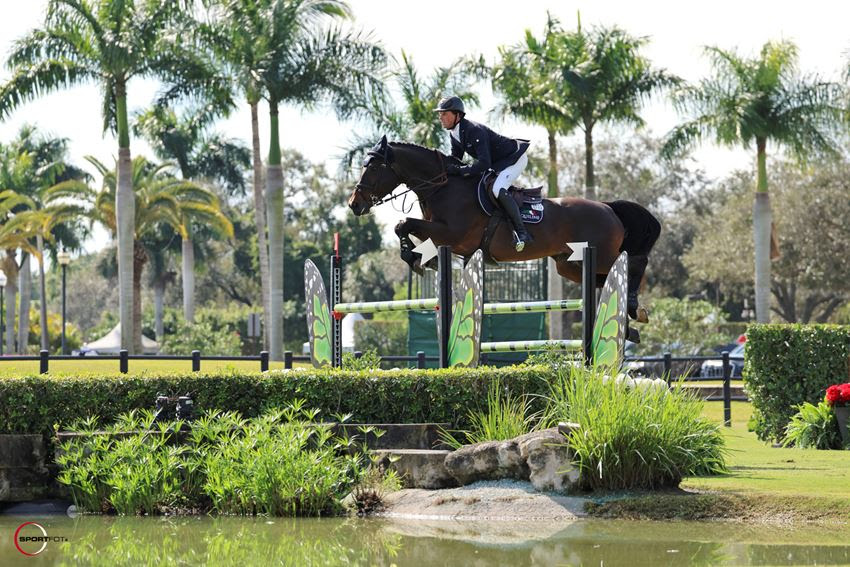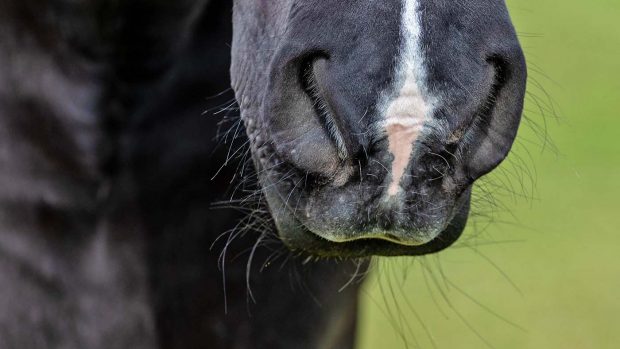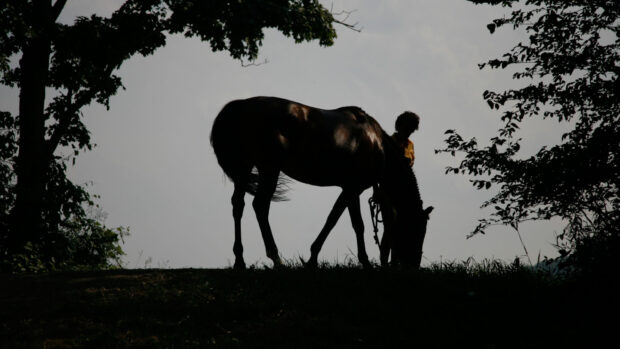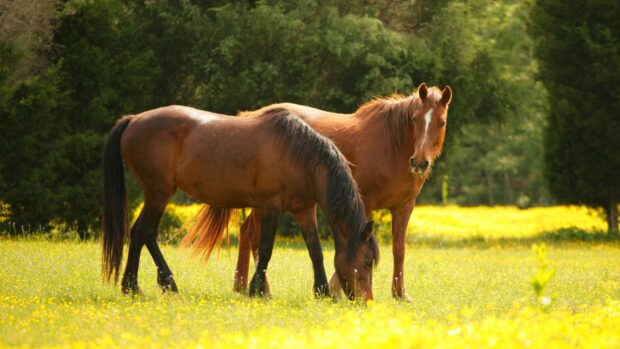The age at which a horse is classed as a veteran has been investigated by researchers.
The team from the University of Kentucky have discussed their initial findings from a study; 122 US senior horses: When are they considered “old” and how does that affect their management? The research, in collaboration with Spillers, involved 2,717 US participants, who completed a survey about their horses’ age and management. Their horses were a mix of retired, semi-retired, and involved in competition or pleasure riding.
Findings included that 47.4% of respondents considered their horses “old”. 22.8% first considered their horses old at the age of 20 – 14.1% at 25 . The top reasons for considering horses older were their showing signs of reduced ability to exercise, age-related disease or disorders, and increased grey hair. Some 90.6% of participants made changes to their horses’ management when they considered them old, including changing their diet and/or adding supplements, exercising them less intensely and stopping exercise altogether.
Lead author Alisa Herbst told H&H the aim of the survey, which is part of a larger project, is to help improve the overall health and well-being of older horses by gaining a greater understanding of owners’ views and experiences.
“For some owners, seeing that ageing process will be a new experience, and they have to adjust their management accordingly. By knowing what others do and having support from experts, they can make the right management decisions,” she said, adding that further analysis of the data will be carried out and the team plans to publish the study in a scientific journal. An abstract has already been published in the Journal of Equine Veterinary Science.
“I understand the response that 20 is considered old, because that’s when we see a decline in exercise capacity – and the number one reason for considering the horse old was reduced ability to exercise. We know that there is a steep decline in exercise capacity between the ages 18 and 20, but it’s also important to consider that low muscle mass can affect the ability to exercise, which is something we also found.”
Dr Herbst added that it is important to consider the difference between reducing exercise intensity and stopping.
“Reducing intensity probably is a good thing to adjust to the horse’s capacity as they age, but stopping altogether may not be ideal. From human literature we know exercise in old age can have health benefits and slow down the progression of some diseases, and it’s very possible that’s also happening in horses. We currently have no studies on that so it would be good to look at this.”
In the UK, horses can join the Veteran Horse Society (VHS) aged 15. Founder Julianne Aston told H&H that the society based this age on the fact racehorses are generally considered old at 15.
“You get horses aged 18 going round Badminton, but these horses doing high-level work are obviously very fit and have a lot of stamina. I would question less experienced riders looking at their horses’ capabilities. For example, if you have an 18-year-old horse that hasn’t done much showjumping, then it’s suddenly taken to a showjumping competition, it might be a bit too much for their limbs. Not every horse at that age can achieve something like winning Badminton.”
Ms Aston added that sometimes owners can struggle to accept their horses are “veterans”.
“Some people can’t wait to join the society, and this year three quarters of our membership coming in are 16- to 17-year-olds,” she said.
“But for others, accepting them as veterans is difficult, and they don’t want to think of them as old. To us at the society, 16 is a baby, but to the owner, 16 is a veteran, and that can be hard to get your head round.”
Grand prix dressage rider Hayley Watson-Greaves bought WG Rubins Nite as a two-year-old. He is now 19 and continues to compete at the top level.
“In terms of competing at an older age, it depends on the individual horse and how much they’ve done in their career. They’ve got to be fit, sound, healthy and happy. If they’re all those things, I don’t see a reason why you shouldn’t be out enjoying them, if they are still happy to do so,” she told H&H.
“It’s important to listen to your horse, which I’m doing with Rubins Nite. I think he’ll tell me when he doesn’t want to do it any more. But equally I don’t want to run him to a point where he is not able to do it. I’d like him to retire from competition but still be in work, because I think that’s good for their mental health. I think for top horses there’s got to be that progression when you retire them, when they’ve been so used to and enjoyed competing.”
Hayley said she has not had to alter Rubins Nite’s management very much as he’s got older so far, but he does enjoy summer breaks between competitions and hacking.
“He knows all the grand prix movements, so I don’t need to do too much of those. It’s more about working on his fitness and suppleness as he’s got older, to be able to do the work without overloading his joints,” she said.
You might also be interested in:

‘An absolute legend’: watch this 19-year-old international grand prix horse still thriving at top level

‘She’s a force of nature’: no plans to retire 32-year-old mare who loves her job
‘I feel Chris would be proud of me for looking after her so well – and I know he’d be

‘He still feels like he wants to do nothing else’: 20-year-old Olympic stallion resumes winning ways

Subscribe to Horse & Hound magazine today – and enjoy unlimited website access all year round
Horse & Hound magazine, out every Thursday, is packed with all the latest news and reports, as well as interviews, specials, nostalgia, vet and training advice. Find how you can enjoy the magazine delivered to your door every week, plus options to upgrade your subscription to access our online service that brings you breaking news and reports as well as other benefits.




